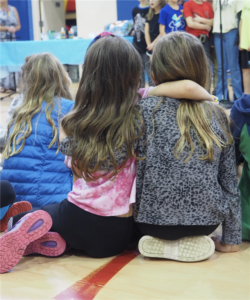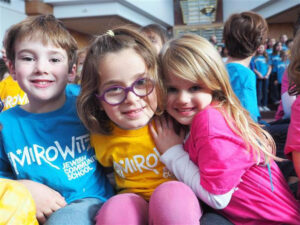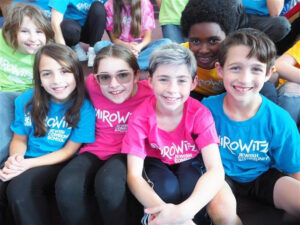“Do not stand idly by if you witness injustice.” Elie Wiesel spoke those words at the 150th commencement ceremony at Washington University in 2011. The Holocaust survivor and human rights activist was paraphrasing Leviticus 19:15 in which God insists we not be bystanders, but rather upstanders. (לֹ֥א תַעֲמֹ֖ד עַל־דַּ֣ם רֵעֶ֑ךָ אֲנִ֖י יְהוָֽה). “You must intervene,” Wiesel said. “You must interfere.” 
We all acknowledge that in any setting — at work, at school, at home, online and in the public forum — there are moments of unkindness.
 Even at Mirowitz, where we start each day encouraging children to think about how to be their best selves and treat others with kavod (respect), children sometimes experience hurt feelings. Our students are human. They make mistakes.
Even at Mirowitz, where we start each day encouraging children to think about how to be their best selves and treat others with kavod (respect), children sometimes experience hurt feelings. Our students are human. They make mistakes.
According to experts, unkindness becomes bullying when someone repeatedly and purposefully does hurtful things to another person who has a difficult time defending themselves. THAT may be the norm in some schools, but it is something we cannot live with at Mirowitz.
It will reinforce what they already know: our behavior — in person and online, at school and in the community — matters.
Our efforts are proactive, and we will are confident that prioritizing this kind of education will help your children to become the kind of leaders we need for our future, leaders who will create a world in which there is “No Place For Hate.”
כן יהי רצון
Ken y’hi ratzon. May it be so.
Morah Raquel


